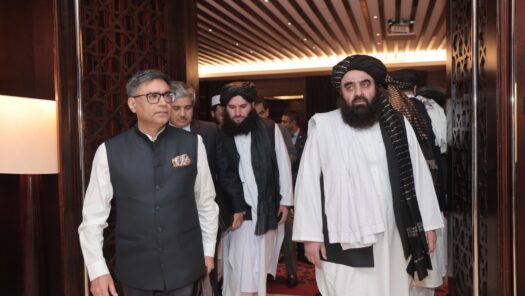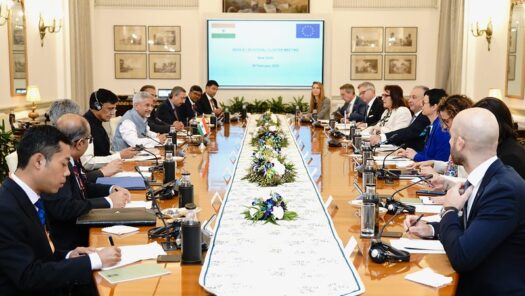Indian Foreign Policy
Return to article
The Evolution and Future of Third-Party Crisis Management in South Asia: Regional Perspectives and Beyond
To better understand the implications of third-party interventions during crises on the subcontinent, the South Asian Voices (SAV) editorial team collaborated with the Stimson Center’s Strategic Learning team to compile a collection of relevant resources and analysis from regional and…

India’s Past Lessons, Current New Normal, and Future Pakistan Policy
After a four-day conflict involving missile strikes, drone incursions, and intense aerial combat, India and Pakistan agreed to a ceasefire on May 10. Both nations have since declared victory and celebrated what they claim is a new approach of dealing…

India’s Approach to Taliban 2.0: Cautious and Persistent
Recent Indian moves such as foreign secretary Vikram Misri’s meeting with the Taliban regime’s foreign minister in January 2025 and news reports of New Delhi potentially accepting a Taliban representative to head the embassy have generated a lot of curiosity…

The EU-India Partnership: Realigned and Re-imagined?
Last month, Ursula von der Leyen, President of the European Commission, and a team of European Union (EU) Commissioners was on an official visit to India. The delegation, comprising 22 out of the 27 members of the EU College of…

India’s Nuclear Bet: Liberalization, Small Reactors, and Big Ambitions
Below, Hely Desai analyzes India’s development of small modular reactors and its implications for New Delhi’s nuclear energy and economic goals. In a recent piece, Brigadier (Retd). Zahir Kazmi responds with some of the concerns that this development generates in…

A Recalibration of Sri Lanka’s Foreign Policy? The Era of Dissanayake
In September 2024, two years after a severe national economic crisis began, Sri Lanka witnessed a significant shift in its political landscape with the election of Anura Kumara Dissanayake as president. Lack of transparency and good governance had resulted in…